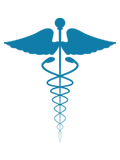Virtual Grand Rounds - Test Page
Speaker

Speaker
Pediatric
Nicklaus Children’s Pediatric Specialists
Nicklaus Children’s Hospital
Miami, FL

Speaker
Pediatric
Nicklaus Children’s Pediatric Specialists
Nicklaus Children’s Hospital
Miami, FL
Learning Objectives
At the completion of this activity, participants are expected to:
Objectives.
Session Details
Recorded on xx/xx/2024
Flyer:
Handouts: Available within the course
This Virtual Grand Round was recorded LIVE. The recording includes the Q&A portion at the end. Live Grand Rounds take place on Fridays at 8 AM - Click to view our current schedule.

 Facebook
Facebook X
X LinkedIn
LinkedIn Forward
Forward